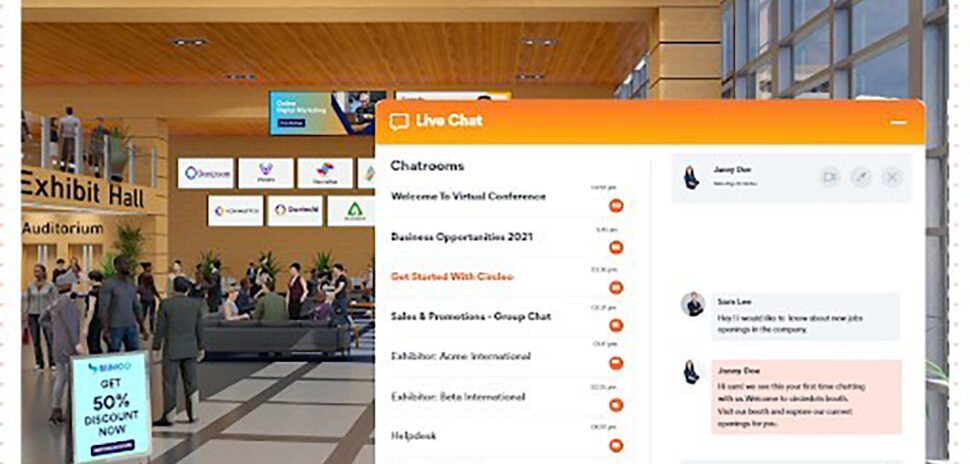Long viewed as a late adopter of technology, commercial real estate is using bleeding edge hardware and software to work smarter — and Dallas-Fort Worth is helping lead the way, experts say.
“A lot of the old guard is retiring, and the people replacing them have grown up in a technology-first culture,” said Bradley Joyce, founder of Skyrise Inc.
Joyce’s North Texas business offers a mobile app that helps landlords communicate better with tenants, while also building a sense of community among people in a property.
“A lot of the old guard is retiring, and the people replacing them have grown up in a technology-first culture.”
BRADLEY JOYCE
As tech-savvy people move into decision-making roles, commercial real estate across the board will be increasingly willing to take flyers on razzle-dazzle systems, Joyce said.
“New technology companies will be able to take risks that may not otherwise have been acceptable previously,” he said.
In another break from tradition, some real estate-related firms are even building their own tools to meet their particular needs.
The Common Desk, a Dallas coworking business with locations in Deep Ellum and the Bishop Arts districts, developed its own software to manage everything from billing to memberships and service calls, according to Nick Clark, who founded the 400-member organization in 2012.
Although the software even acts as a social media platform, Clark was planning to switch in January to management technology from an outside vendor, Meshwork.
“As we look at connected buildings, we will see more systems like smart elevators, smart lighting, and better controls for the overall building,” Clark said. “The more time I can get for my managerial staff to focus on people rather than operations, the better able we are to turn our building into a community, rather than a commodity.”
Improving communications and property operations both are key in how Chad Cook uses technology at Quadrant Investment Properties.
The Dallas business Cook founded is a turnaround shop of sorts for real estate, purchasing well-built office and industrial properties that have fallen on lean times because of management or capital issues.
Although Cook uses prominent tech brands such as Slack’s mobile app for teams, he’s also employed lesser-known tools from the likes of Wunderlist (whose app keeps to-do lists for professionals) and Wricke, a vendor of project management software.
“We have also spent a significant amount of time exploring options like Skyrise and Elev8,” he said.
Another vital tool for Cook comes from Dallas-based Glass-Media, which provides digital displays for storefronts, walls and other public places.
“There is almost no comparison to how we operate today versus when I started my career almost 20 years ago,” he said.
SIMPLICITY SELLS
For a glimpse of both how technology springs us in commercial real estate and for where it’s going, take a look at Dallas-based Primal Sensors, whose system helps keep track of people and stuff on commercial construction sites.
Jerry King started the business in late 2014 after he was left shivering for hours in 30-degree weather at a triathlon, where he had lost track of his friends. He teamed with a pal, Andrew Davis, who feared becoming separated from his offspring at large public places.
Although they geared their first stab of Primal’s technology at the amusement industry, they later learned that $750 billion-plus of people, materials, and supplies go AWOL on commercial construction sites in America each year.
“For now, technology providers to construction are focusing on doing one thing well.”
JERRY KING
Yet the industry lacks easy-to-use technology for finding it all or, better still, preventing it from disappearing in the first place, King said.
“So we pivoted,” he said. “The opportunity is enormous.”
But so are the challenges. Like most every area of commercial real estate, construction companies traditionally have embraced technological change slowly, he said.
“The key is simplicity,” he said. “For now, technology providers to construction are focusing on doing one thing well. Eventually, we expect to see people aggregate these various solutions in broader management tools.”
For emerging vendors to commercial real estate such as Primal, the good news is that the technology revolution has helped foster a class of potential early adopters in the form of startups in everything from development to brokerage.
Grant Pruitt launched Dallas-based Whitebox Real Estate in 2016 in part because he felt constrained by the slow pace of decision-making at large firms.
As president and managing director of the tenant-rep shop, he’s willing to consider new tools that might help give him an edge against the big boys.
“We’re young, and we’re hungry,” he said. “Technology lets us work most everywhere.”
BETTER DECISIONS THROUGH DATA
One step removed from the daily work that players such as Pruitt do to make the real estate industry run, new tools are emerging to inform the decisions of corporate chieftains and policy makers alike.
In June 2015, CoreLogic, a California-based data analytics supplier for real estate with a Westlake campus, rolled out a big leap forward for academic researchers.
Its University Data Portal centers on the housing market, giving analytical insights on everything from 148 million property characteristics (such as values and bathroom counts) to 45 million foreclosure records.
“Location and price are no longer the only factors that go into tenants’ leasing decisions. Amenities and culture are playing a huge role now.”
BRADLEY JOYCE
“The subject matter and depth and breadth of the data is what sets us apart from any other real estate data source in the industry,” said Adam Laughery, a Washington, D.C.-based national account executive.
Researchers have used the Portal to examine questions such as whether foreclosures make housing downturns worse, and the impact on housing from shale development of natural gas.
“Our 2017 roadmap includes adding the CoreLogic Home Price Index, as well as several other analytics datasets covering listings, rentals, and commercial property market trends,” Laughery said.
Just as tools like the Portal have helped democratize analytics, look for future technologies to help real estate companies of all stripes better understand their customers, from top to bottom.
“Location and price are no longer the only factors that go into tenants’ leasing decisions. Amenities and culture are playing a huge role now,” said Joyce of Skyrise. “Buildings need to better understand the individuals that occupy their space, and not just decision makers.”
One academic has argued that any individual can have at most 150 stable relationships, Clark adds. “That theory is becoming ancient because of social media.”
This article originally was published in the Dallas-Fort Worth Real Estate Review.
Delivering what’s new and next in Dallas-Fort Worth innovation, every day. Get the Dallas Innovates e-newsletter.



































































